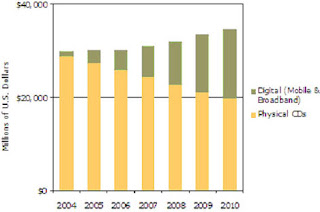
Shares of Carphone Warehouse Group, Europe's largest mobile handset retailer, rose the most in more than five years in London trading on speculation the company may receive a takeover offer, says the Bloomberg news service.
"Rumors about bid interest from Vodafone and Best Buy have been doing the rounds for some time," says Jimmy Yates, a London-based trader at CMC Markets.
What is interesting is the strategy context driving some of the rumored suitors. Best Buy has a small stake in Carphone Warehouse, which operates 2,400 stores across Europe. Best Buy also is collaborating with the U.K. chain to boost sales of mobile products in the U.S. Best Buy stores.
So you might argue that Carphone is simply a way for Best Buy to expand its footprint in its current business.
But keep in mind that Carphone also has 2.5 million Digital Subscriber Line customers. It also has a backbone network. Consider that Best Buy's Geek Squad is in the technology services business.
And recall that Best Buy owns Speakeasy, a provider of business-class broadband access and voice services in the U.S. market. Sure, Best Buy can grow its retail footprint. But by acquiring Carphone Warehouse, Best Buy makes an even bigger bet to become a more-significant provider of broadband access, business voice and mobile services.
For Best Buy, its core business is more than acting as a retail distribution channel. It is a service provider. Owning Carphone Warehouse would only deepen that commitment.
Now consider the possibility that Vodafone might acquire Carphone Warehouse. The idea there is not so much that Vodafone wants to become a mass market electronics retailer. Vodafone, long a dominant wireless service provider, now must also become a multiple-services provider, and broadband-based services provided over wireline networks are part of the vision.
Carphone Warehouse would give Vodafone much more heft, in that area. It might not strike you as significant that wireless and wireline services are converging. It might be a bit more surprising that retailers are moving from simple channel partners into the service provider business.







